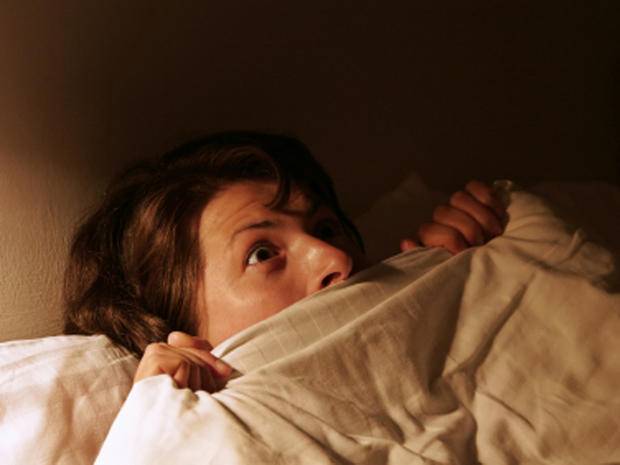Lack of sleep may lead to insulin issues
Sleep deprivation could add to insulin resistance especially in fat cells, a new study reveals. Uncurbed, it could lead to a whole host of health problems including type 2 diabetes and obesity.
"We found that fat cells need sleep to function properly," study author Matthew Brady, associate professor of medicine and vice-chair of the Committee on Molecular Metabolism and Nutrition at the University of Chicago, said in a press release.
- Study confirms not enough sleep raises diabetes, obesity risks
- Study: Sleeping less may mean you'll eat more
Researchers tested a small group of six men and one woman, all who were about 24 years old and normal weight. The group was instructed to spend four days in a sleep and get 8.5 hours of shut-eye a night. After at least four weeks, they spent another four nights in the sleep lab and were tasked with getting 4.5 hours of sleep each night. During both trial periods, food was closely regulated so participants were eating the same things, and they were told not to exercise.
On the fourth night of both periods, volunteers took an intravenous glucose tolerance test to check for total-body insulin sensitivity. They also had a biopsy of abdominal fat removed to see specifically the levels of insulin sensitivity in fat cells.
After the four nights of the shorter-sleep period, the participants' total-body insulin response dropped 16 percent, and the insulin sensitivity in their fat cells was lowered by 30 percent. Insulin levels were three times higher in the sleep-deprived group than in the well-rested group.
High levels of insulin signify that the body is having a hard time metabolizing sugars, which means cells are not responding to insulin, what's known as insulin resistance. The pancreas is triggered to make more insulin, which increases insulin levels even more. Eventually, the person may develop Type 2 diabetes due to this resistance. Moreover, Brady notes that fat, otherwise known as adipose tissue, can remove fatty acids and lipids from the circulatory system where they can cause damage. If the fat cells are not responding to insulin, the lipids remain in the system and can lead to other complications.
According to the National Sleep Foundations 2011 Sleep in America poll, 34 percent of Americans between the ages of 13 to 64 say they rarely or never get good sleep during the weekdays. Sixty percent say they have a sleep problem nightly or wake up in the middle of the night. While the average respondent said that they needed 7.5 hours of sleep to feel rested, 63 percent said they were only get six hours and 55 minutes.
"So much of the population is sleep deprived, and sleep has been implicated in a lot of abnormal bodily functions," Dr. Spyros Mezitis, an endocrinologist and clinical investigator at Lenox Hill Hospital in New York City, told HealthDay. He was not involved in the study. "This study sets the stage for a better understanding about what we should be telling patients about sleep. Sleep may be another important lifestyle modification that people need to make."
The researchers added that since the study was only on seven people and included one woman, they need to expand results to see if it could affect more people. They also admitted that there is a possibility that sleeping in on weekends to make up for lost sleep may be able to offset this effect. The scientists plan to further their findings by seeing if fixing sleep apnea and lengthening sleep periods in obese, middle age people with sleep apnea will help improve their fat cell insulin resistance.
The results were published in the Annals of Internal Medicine on Oct. 16, 2012.

